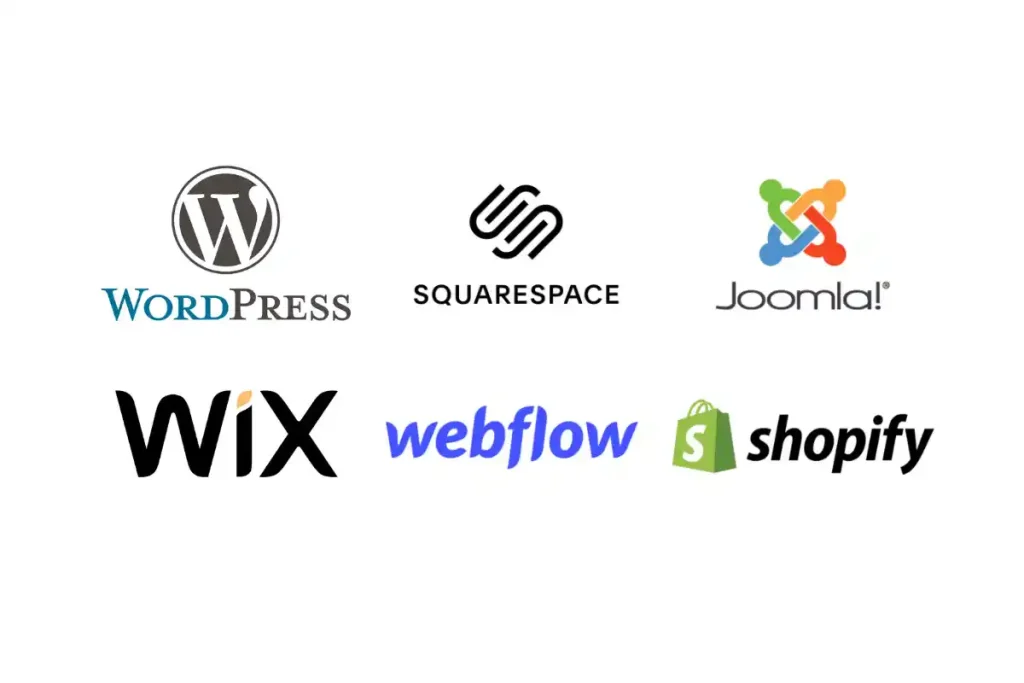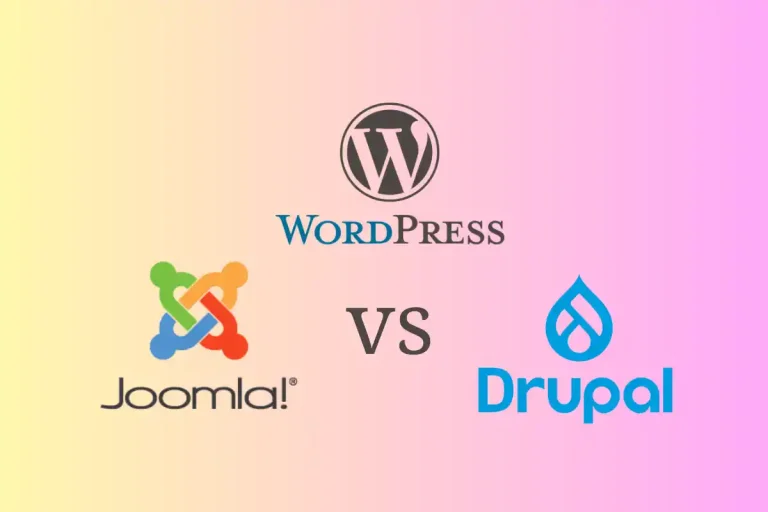The Best Content Management Systems for Building a Website in 2025
The Best Content Management Systems, In 2025, creating a website is easier than ever, thanks to a wide range of Content Management Systems (CMS) that let you build, manage, and update your website with ease. Whether you’re a blogger, business owner, or e-commerce entrepreneur, choosing the right CMS is essential to your website’s success. With…

The Best Content Management Systems, In 2025, creating a website is easier than ever, thanks to a wide range of Content Management Systems (CMS) that let you build, manage, and update your website with ease. Whether you’re a blogger, business owner, or e-commerce entrepreneur, choosing the right CMS is essential to your website’s success.
With so many CMS options available, how do you know which one is the best for your needs? In this article, we’ll review the top CMS platforms for building websites in 2025, helping you find the perfect fit for your project.
What is a Content Management System (CMS)?
A Content Management System (CMS) is a software platform that allows you to create, manage, and modify digital content on your website without needing extensive technical knowledge. Most CMS platforms offer a user-friendly interface, making it easier to design and publish web pages, blog posts, and other content without having to write code.
Now, let’s explore some of the best CMS options for building a website in 2025.
1. WordPress: The King of CMS
Why Choose WordPress?
WordPress is still the most widely used CMS worldwide, powering more than 40% of all websites. Its flexibility, ease of use, and huge community make it the go-to choice for many website owners.
Key Features of WordPress:
- Intuitive Interface: WordPress is simple to navigate, making it beginner-friendly. You don’t need to know how to code to build a professional website.
- Thousands of Themes and Plugins: WordPress offers thousands of free and premium themes and plugins to customize your website and add advanced features.
- SEO-Friendly: With plugins like Yoast SEO, WordPress makes it easy to optimize your site for search engines.
- Open-Source and Free: WordPress is free to use, and you have complete control over your website.
Best For: Bloggers, small businesses, eCommerce stores, and those who want a flexible, customizable website.
2. Wix: The Easy Website Builder
Why Choose Wix?
Wix is a drag-and-drop website builder that’s perfect for those who want an easy and quick way to build a website. It’s a great option for beginners who don’t want to worry about technical aspects.
Key Features of Wix:
- Drag-and-Drop Interface: Building a website on Wix is as simple as dragging and dropping elements onto your page.
- AI-Powered Design: Wix offers an AI tool called Wix ADI that helps you create a website based on your preferences, saving you time and effort.
- Built-In Hosting and Security: Wix provides hosting and SSL certificates as part of its service, so you don’t need to worry about these technical details.
- App Market: Wix has a large marketplace of apps that allow you to extend your website’s functionality with ease.
Best For: Small businesses, personal websites, and those looking for a simple, all-in-one website builder.
3. Squarespace: Beautiful Design with Powerful Features
Why Choose Squarespace?
Squarespace is known for its stunning design templates, making it ideal for creatives and businesses looking for a visually appealing website. It offers a balance between design and functionality.
Key Features of Squarespace:
- Beautiful Templates: Squarespace offers professionally designed templates that look stunning on any device.
- All-in-One Platform: It includes everything you need – hosting, domains, eCommerce tools, and more – all in one platform.
- SEO Tools: Squarespace comes with built-in SEO features to help your website rank higher in search engines.
- 24/7 Customer Support: You’ll have access to reliable customer support whenever you need it.
Best For: Creative professionals, photographers, artists, and small businesses that want a beautiful, easy-to-manage website.
4. Shopify: The Best CMS for eCommerce
Why Choose Shopify?
If you’re looking to build an online store, Shopify is the best CMS for e-commerce. It’s designed specifically for online sales and makes setting up and managing an online store easy.
Key Features of Shopify:
- Easy-to-Use eCommerce Tools: Shopify provides all the tools you need to set up and manage an online store, including payment gateways, shipping options, and inventory management.
- Customizable Themes: Shopify offers a wide range of themes that can be customized to fit your brand.
- Secure Payments: Shopify integrates with popular payment processors and ensures secure transactions.
- App Store: With over 3,000 apps, Shopify lets you enhance your store’s functionality.
Best For: Entrepreneurs, small businesses, and large enterprises that want to create a successful online store.
5. Joomla: The Flexible and Powerful CMS
Why Choose Joomla?
Joomla is a versatile CMS that is perfect for users who need advanced customization and scalability. It’s slightly more technical than WordPress but offers more flexibility in terms of how you build your site.
Key Features of Joomla:
- Advanced Customization: Joomla allows you to control every aspect of your website, making it ideal for users with more technical knowledge.
- Multilingual Support: Joomla has built-in support for multiple languages, making it a great choice for international websites.
- Extensions and Modules: Joomla has a wide range of extensions and modules that can be easily added to extend functionality.
- Community Support: Joomla has a large community of developers who can help you with customization and troubleshooting.
Best For: Users with some technical expertise, large-scale websites, and those who need complex, feature-rich websites.
6. Webflow: For Designers and Developers
Why Choose Webflow?
Webflow combines the ease of a website builder with the flexibility of a content management system. It’s perfect for designers and developers who want to create custom websites without writing code.
Key Features of Webflow:
- Visual Web Design: Webflow offers a powerful drag-and-drop editor that allows for complete design freedom.
- Custom Code Integration: You can add custom code to your site if you need more control over its functionality.
- Responsive Design: Webflow ensures your site looks great on all devices, with responsive design tools built into the platform.
- Hosting and SEO: Webflow provides fast hosting and built-in SEO tools to improve your site’s search engine rankings.
Best For: Web designers, developers, and businesses that need a custom, high-quality website with full design control.
Conclusion: Choosing the Best CMS for Your Website in 2025
There’s no one-size-fits-all when it comes to choosing the best CMS for your website. The right choice depends on your specific needs, level of technical expertise, and the type of website you want to build.
- WordPress is perfect for flexibility and customization.
- Wix is ideal for beginners who want a quick and easy setup.
- Squarespace is great for those who prioritize design.
- Shopify is unbeatable for building eCommerce websites.
- Joomla is perfect for advanced users needing flexibility and scalability.
- Webflow is the best option for designers and developers who want full design control.
No matter which CMS you choose, make sure to consider factors like ease of use, security, customization options, and scalability to ensure that your website performs well in 2025 and beyond.



